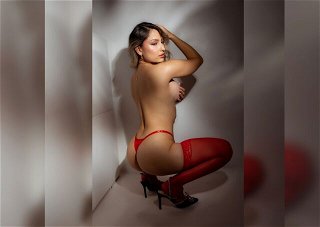Note: You can change font size, font face, and turn on dark mode by clicking the "A" icon tab in the Story Info Box.
You can temporarily switch back to a Classic Literotica® experience during our ongoing public Beta testing. Please consider leaving feedback on issues you experience or suggest improvements.
Click here"The talent skipped several generations." said Rhigen. "Arivan married a human, and their children showed no talent. That held true for a hundred years. Then your great-grandfather... had an elven mistress. The relationship did not last long, but she bore a son. Your great-grandfather convinced his wife to recognize the child as her own. And thus your grandsire -"
- "WHAT? My grandfather was half elven?"
- "He never knew it. And once again, the talent skipped a generation."
- "My father was a quarter elven?"
- "Yes." said Rhigen. "One of the supreme ironies, wouldn't you say? That was why I kept coming here, besides for Glasha. It was to see if your father manifested any magic talent, or any affinity for our people. Obviously, he had neither."
- "My father was part elven...?" Saying it again didn't make it seem any more real.
- "It's a mystery to us that you and two of your siblings showed some talent. It should not have been - and yet there it was."
- "A mystery?"
Rhigen frowned. "But you mustn't think that you can push yourself like this. One step too far - one single step - and you could be lost."
- "Then help me." I said.
- "I'm not sure that I can. You already gather more aether than anyone I've ever seen. Even Naevys doesn't use as much as you do."
- "Do you remember, Rhigen, when you told me that fey children were taught to make aether arrows? Whereas I went immediately to a spear?"
- "Yes, of course."
- "Show me how the fey make an arrow."
- "But your spear is much stronger. It's immensely more powerful."
- "But, in theory, if I could shape an arrow, I could fire it much farther..."
***
For the rest of that winter, Sanatha and I worked. We met with the southern Lords, hired virtually every river-boatman on the Varna, and planned out how we would make use of our allies - assuming that they turned up to stand with us.
But I trained with Rhigen regularly, finding new ways to employ magic, or to improve those weapons I already had. I overreached myself once, and Glasha's father watched over me as I recovered. He and Murzosh built a small fire to keep me warm.
The next time I stretched too far, Murzosh once again carried me back to the Palace. I woke in my bed, with Saska holding me tight, warming me with her body.
- "Please." she said. "Please be more careful."
Rhigen did not comment on it, but neither of us failed to notice that after these episodes, I came back even stronger. I was now able to gather an astounding amount of aether. He said nothing, for fear of encouraging me to take ever greater risks.
And as the winter gave way to spring, we began to call in our fighters, and to evacuate the city of Whydah.
It must have broken the hearts of Bathene Esin and Benaz Corig, but they'd come to understand that there was no other option. It had to be difficult, though, to convince their people to pack up and leave.
The boatmen honoured our agreements, and arrived to help carry away goods and movable property. Urbo did his job well; our ship captains took their sea-going vessels and sailed for Portoa or other harbours.
It didn't stop there. Many loyal Esin and Corig retainers and tenants from outside the city were also evacuated, and moved south. I met the mother of Telek and Kalju: she pressed her face to the back of my hand. That was too much for me - I took her in my arms and hugged her tight.
Alissara and the elves arrived, 200 strong. Durgat brought his fighters, 250 in total. Yazgash and Enneiros stayed close by Sanatha and me, with 50 half-orcs and 50 elven archers.
Tir Tanle would command on the western side of the river. She had 200 men, including troops from Gerdar Azren and Talanassa Albo, who was leading her fighters in person.
On the eastern side, we had the Esin and Corig men, led by my friend Hurmas. After all of his work in Whydah ever since the second battle there, they were coming to know and to trust him. There were 400 fighters in that contingent.
We also had the Eastern Lords: Caenog was off with the horsemen, but Dergun and Moksha, supported by Ostro and Candre, led 300 more troops.
The Penedas arrived, with 100 horsemen. Caenog, Pyera, and Orchir merged with them, so that we had a separate force of 200 mounted men. Beyond that, we had another 50 mounted scouts, so that we would be able to see whenever and wherever the enemy moved.
Tanle would be on the western side of the river, watching carefully in case the mercenaries fooled me by going in that direction. On the eastern side, I had an army of some 1500 - though most units would be acting independently. We didn't need to concentrate them, because I had no intention of giving battle - yet.
Behind us were another 500 soldiers, carrying out the thankless task of evacuating farmers, herders and villagers. They were trying to encourage or persuade people to cooperate, but as a last resort, they were prepared to use force. They knew my mantra: whatever could not walk away, or be carried off, was to be destroyed. That rule applied to people, animals, and food.
This was not a popular decree. Nor did I expect it to be applied consistently. But every horse or sheep that fell into the hands of our enemies only made our defence of Varna more difficult. If we won, I hoped that the folk would eventually forgive me.
If we lost... then it would hardly matter.
I had been hoping, too, that the fey would come. Rhigen had said that they would, but I couldn't quite convince myself that they would agree to fight on the far side of the river from their homes. The fey do not care for open water. Perhaps in the distant past, things were different, but now even the expanse of the river terrified them.
Yet they came. Naevys and 60 fey fighters joined us.
- "Some of the older ones were sorry that they missed the last war." he said.
Murzosh and Glasha were with me, and Osha bore our standard. Saska was back in Elmina, because her pregnancy was more advanced, now. The town was garrisoned by men of the south, and commanded by Tir Alit. He was an honourable man, and Sanatha and I decided to trust him with the care of the capital - not to mention my pregnant wife and our little heir, Sirma.
***
Kalju, our spy in Galtin's Port, was wrong. Forty ships, he'd said. One hundred and fifty cannon, fifty of which would be landed. Twenty-five hundred mercenaries. Two hundred crossbowmen.
There were over 60 ships. Perhaps a dozen were smaller vessels, but they had forty ships which Urbo classified as armed merchantmen.
- "The pair in the lead are warships, though." he said.
We were watching the enemy's approach from a hill on the eastern side of the river, over a mile from the harbour. I had the aether to supplement my senses; I was surprised that Urbo could see so far, and so well.
The winds were westerly, so the huge fleet sailed past the town, tacking to and fro. They were well out to sea, out of range of the guns we had. Then they changed course, and formed line astern.
They still seemed to be out of range, but then the lead warship opened fire, raking the seawall with their heavy guns. The second warship soon joined in. There was no response, of course, because the city was undefended. I wasn't sure that the enemy even noticed.
They had to have seen, though, that the harbour was completely empty of ships. I hoped that that would come as an unpleasant surprise. If they were expecting to pay for a part of their venture by capturing a number of our merchant vessels, then they were about to be disappointed.
One warship continued to pound the town wall, while the other led the way into harbour. It fired again, targeting the quay side, until the sailors finally realized that there was no one there.
It must have been eerie for the men of this great invasion fleet to meet absolutely no resistance. They'd obviously been prepared to sweep away our defenders with cannon fire, and use the ships' boats to land their first fighters. Now all they had to do was dock their ships, and disembark directly.
Kalju had been wrong about the number of mercenaries as well.
- "Over 3500, by my count." said Urbo.
- "4000, maybe." said Osha.
Too many. Far too many. Would our fighters lose heart when they found out how numerous our enemies were? I tried to put a brave face on it.
- "More than we expected." I said. "But perhaps too many for them to feed. It may turn out to be an advantage for us."
Wishful thinking, perhaps. But what else could I say?
The mercenaries also landed cannon. They were big guns, larger and more frightening than anything we possessed. Galtin's Port had made many innovations in gunnery - or perhaps they only sold second-rate weaponry to backwater Duchies like Varna. Another possibility, of course, was that my father had been too cheap to buy the very best.
Along with the guns, they unloaded hundreds of barrels.
- "Black powder?"
- "Those ones, yes." said Urbo, pointing them out to me. "The larger ones are for water... or perhaps for grog."
- "How are they going to move them all?" I asked, out loud. They would need horses to drag the guns, and more horses to pull the wagons carrying gunpowder, or water. The sheer size of this expedition began to make me feel more confident.
For two days, we watched the mercenaries' ship disgorge men, guns, cannonballs, powder, and supplies of every kind. The enemy troops pushed into the city. There they found some of the traps and other unpleasant surprises we'd left behind for them. They weren't all deadly, of course, but we hoped that there would be a few fatalities and quite a few more painful injuries.
The mercenaries also found some of the two or three dozen people who had remained in the city. We had tried to evacuate everyone, but for reasons of their own, some individuals went into hiding rather than come with us. It proved to be an unfortunate decision.
The mercenaries were spooked, at first, to find the city almost bereft of life. Then they became angry, when they discovered that there was no food, and no plunder. For their commanders, it was probably equally troubling that there were no carts or wagons, and no animals to pull them.
When they first took possession of the landward walls, they also discovered something else they hadn't expected: the land outside Whydah was a blackened waste.
We'd burned it all. The fields, the crops, even the grass. It was impossible to do that while saving farmhouses, so we didn't even try. If we could defeat the invaders, those homes could be rebuilt. But if destroying them made it more difficult for our foes, then I was prepared to do it - and I was prepared to do more. We did this on both sides of the river, for a distance of ten leagues.
I don't know if the mercenaries were daunted by what they saw.
They should have been.
***
It took Kurebir's mercenaries four days to land all of their gear and supplies. More than half of their ships sailed away to the east, no doubt bound for Galtin's Port. One of the two warships remained, along with twenty of the larger merchantmen.
I was very pleased to see, though, that over 2500 troops were landed on the eastern bank of the river Varna. That was also where a number of cannon and a mountain of supplies were unloaded. This had to be more than a mere feint: they meant to invade by the eastern route.
I was less pleased to see that they'd brought over 200 beasts of burden, but that was only a drop in the bucket compared to what they would truly need.
Someone on the other side was thinking, though. They brought one of the smaller ships in their fleet past the harbour, and tried to pull it upriver. The winds weren't entirely favourable, but with sixty horses and as many men, they were able to move against the current. They progressed several leagues before the end of the day.
The following morning, they carefully manoeuvred the ship about, so that it could ride the current back towards Whydah. It had been just a test. But I didn't need Urbo to tell me how bad this was. Even a small merchant ship could carry tons of food, or gunpowder - not to mention the cannons on board, which could threaten either side of the river.
I left Sanatha in command, with Yazgash and Enneiros to advise her, and crossed to the western bank with only Murzosh, Osha, and a small escort. I also asked Captain Urbo and Rhigen to come along.
We met some of Tir Tanle's scouts, who were patrolling the edge of the river. She wasn't too far off, and rode over to meet us.
- "Why are you here?" she said. "They aren't coming this way - we've seen no sign of it."
- "No. They're still on the other side. But this experiment with the smaller ship is worrisome. If they can bring supplies upriver, and keep pace with their army, we won't be able to stop them. Their cannon can sweep either bank."
- "Shit."
- "Exactly. And if they bring more of these smaller vessels back... they could have half a dozen or more supply ships on the river."
Tir Tanle looked at me oddly. She was nobody's fool.
- "You could have sent me a messenger. Why are you here in person?"
- "To make an experiment of our own."
My mother-in-law wasn't blind, either. She saw Captain Urbo and Glasha's father among my little entourage.
- "What are you going to do?" she asked.
- "I won't know until I see the ship." I said. It was the first time I'd lied Saska's mother.
Two days later, the merchant ship came back upriver. It was being pulled by a combination of horses and men.
- "There must be a hundred horses there." said Osha, who was watching the opposite bank.
- "She's heavily laden." said Urbo. "She's riding much lower in the water."
He'd spent the better part of an hour with me the night before, explaining ship construction and the handling of sailing vessels. I learned that the planks of a wooden ship weren't entirely watertight. They were sealed with tar or pitch, often supplemented by clumps of horsehair or bits of cloth to fill gaps. But the caulking was never perfect.
- "All ships leak." said Urbo.
I'd chosen a spot where the Varna narrowed, until it was less than 200 yards across. I gathered all of the aether I could - and then piled on more. I was so full, I felt as though I had to burp. I shaped it into a large spear, bigger than anything I'd tried before.
On my own, I'd split a tree at a hundred yards. Yes, I'd knocked myself out. But I was more powerful now, and these people were coming up our river, threatening all of our people. I knew from experience that anger only amplified my power, as it had on the night when I'd killed Nathal.
I could do this. I knew that I could.
I launched my massive aether spear with all of my might, aiming at a spot two or three feet beneath the ship's waterline.
I'd never driven an aether weapon through water before, but it was much less difficult than putting it through a man's body. I knew instantly that I'd succeeded - to a degree.
Then my mind gave way, and I collapsed.
***
I awoke to a pair of sensations, one awful, and one very nice. My head hurt; the pain was a dull ache. It was constant, and occasionally increased in intensity. But someone was stroking my hair, and I thought that I recognized her touch.
- "Glasha?"
- "I'm here."
- "When... when did you come over?"
- "I didn't. Murzosh and the others brought you back yesterday. They were getting worried. Now I'm getting worried. You can't keep doing this, Tauma." � � � � � � � � � � � � �
- "I had to try." I said, wincing as another wave of pain crested inside my head. "Did it work?"
- "Yes."
That was a relief. This pain would have been much harder to bear if I'd failed.
- "Glash - " I tried to sit up, much too quickly. The sudden pain caused to me to squeeze my eyes shut. Glasha helped me to lie back again, supporting my head.
- "Just lie back. You need more sleep."
She was right.
When I woke again, Murzosh was there.
- "Thank you." I said. "Again."
- "You could thank me by not doing this so often." he said.
Later that day, I was awake enough to hear from Captain Urbo.
- "You didn't just split the planking, Lord. You stove in at least two whole planks. The crew heard the noise, but they didn't know what had happened until the ship began to list. She was taking on water too swiftly for them to bail." He grinned at me. "You sank her, Lord. The whole ship is on the bottom on the river. Cannons, supplies... all lost. Only the masts are still showing. They had time to launch a boat, and some of the sailors clung on to the masts, or the rigging. But most of the soldiers aboard drowned."
It was an awful way to go. Most sailors couldn't swim, but armored men simply sank like stones. They were our worst enemies, though, so I had wished it on them.
- "Thank you, Urbo."
Sanatha came in that evening, with Rhigen.
- "They've started moving our way." she said.
I blinked. I didn't want to risk suddenly nodding my head. Sanatha turned to Rhigen.
"Will he recover?"
- "That remains to be seen." said Glasha's father.
- "I don't mean his magic. What I want to know is, will he live?"
- "Yes." said Rhigen. But I didn't find the look on his face particularly encouraging. Neither did Sanatha.
- "Why did you say 'it remains to be seen'?"
Rhigen sighed. "Your brother knows that he is walking on the very edge of the cliff, Lady. If he continues, then one day he will fall off."
***
The mercenaries marched out of their beachhead on the eastern side of the river. Kurebir and Yavantay had been busy: they'd shipped at least another 1,000 troops over from the city. By our estimates, that left a garrison of 500 or so in Whydah. It wasn't an especially formidable force, but the guns they possessed would ensure their safety.
The enemy leaders had built dozens of light carts, which could be pulled by two horses - or six to ten men. The guns, as I'd hoped, would have to be dragged by mixed teams of horses and men.
- "They won't be moving very fast." said Enneiros.
- "No. And we have to keep it that way."
I had Enneiros and his elves with me, along with Yazgash and fifty half-orcs. Alissara and her two hundred were nearby, while Durgat and his warriors were directly behind us. Our mounted men, two hundred strong, were off on our flank, away from the river. I'd had no choice but to leave Tir Peneda's son in command, even though I didn't know him very well. The fellow's name was Arvo - admittedly, I got a good feeling from him. I was glad, though, that it was the two oldest sons who commanded; their younger brother didn't seem to care for me.
The Penedas were supported by Caenog, the new Tir Pyera, and Gerdars Kilfa and Orchir. Their job was to harass any enemy who came too far from the riverbank.
I suspected that Kurebir and Beksha - or whoever was in command over there - would want to stay close to the river. For one thing, it would give them access to drinking water - one less thing that they would have to carry or drag along with them. But it would also protect one of their flanks.
- "They're leaving men behind." said Yazgash.
Sure enough, some five hundred mercenaries remained at their base camp, while the remainder - 3,000 or so - advanced against us. Were these men going to act as a rearguard? Or was this camp to be kept as a staging point of sorts?
That first day, the enemy managed to cover only four leagues.
***
They would improve on that measly beginning. The men were learning to handle their awkward carts. Another day or two would also see them pass through the zone of charred stubble where we'd burned everything.
After that area, we had only torched the crops. There would be spring grass for the enemy's horses (and for ours), but no stockpiles of food to collect, no small herds of livestock to snap up. Most important, the invaders would not find horses, oxen, or mules that they could use to haul their guns and supplies.








